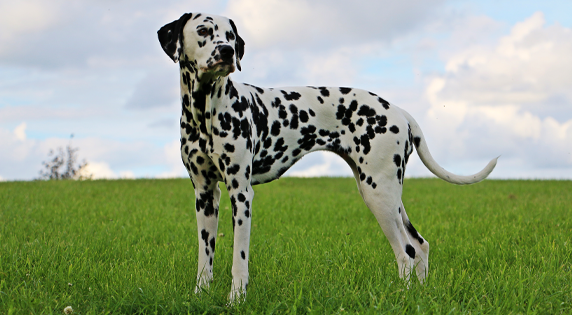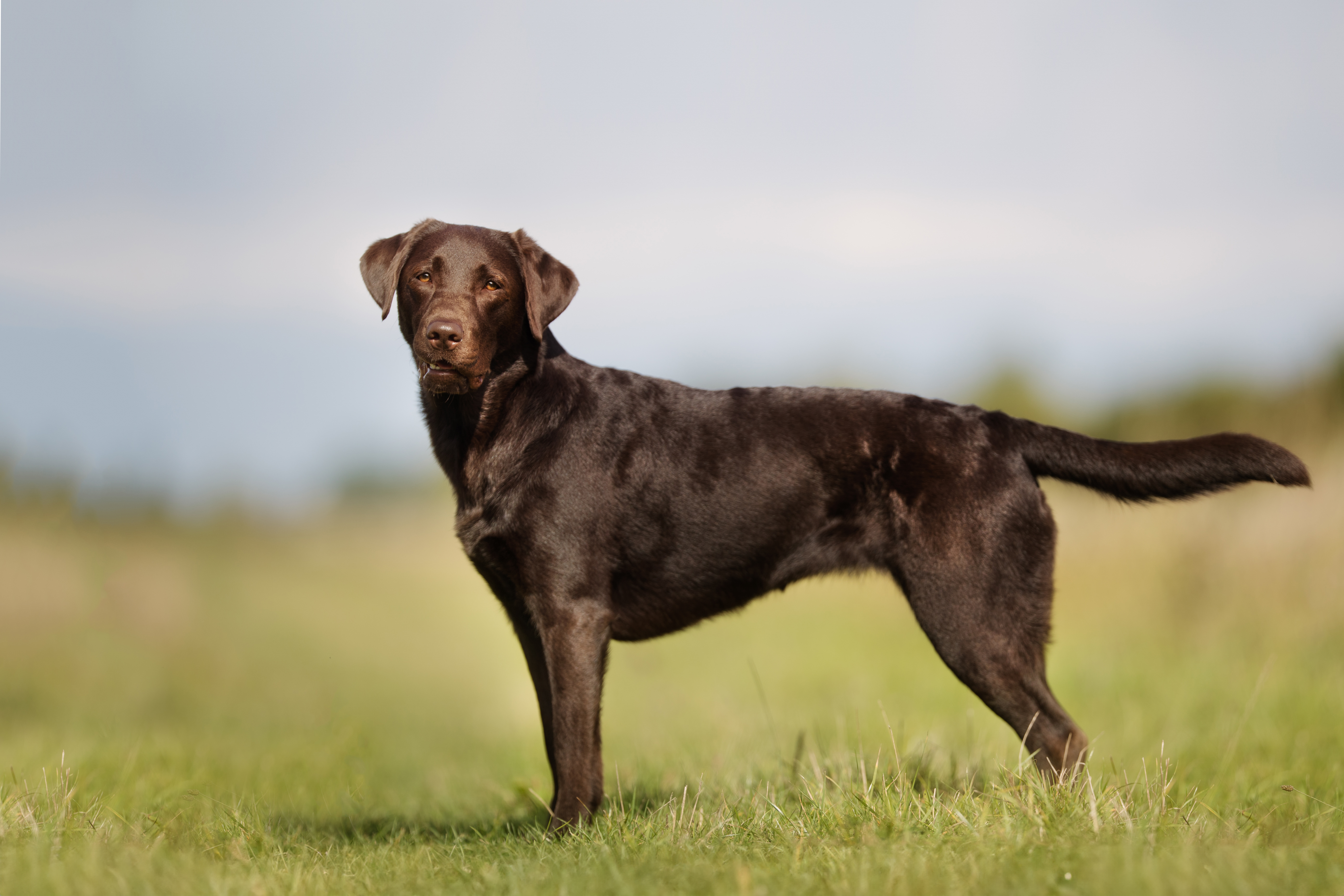
What is the best dog food?
The answer to the above question is subjective and depends on your own preference and that of your dog. We’ve made an overview of the most popular diets in every category, using our extensive range of dog foods.
The Dalmatian is an elegant and energetic dog, known for its distinctive white coat with black or liver-coloured spots. This breed has a rich history and was originally bred as a carriage dog, which helped develop both its endurance and protective instincts. The Dalmatian has an athletic, muscular build and a lively personality, making it ideal for active families and sporty owners. It has a short, dense coat that requires little maintenance but sheds throughout the year. The Dalmatian is intelligent, social, and requires plenty of exercise and mental stimulation.

The exact origins of the Dalmatian are not fully documented, but the breed is associated with the Dalmatia region in present-day Croatia. In the 18th and 19th centuries, Dalmatians were commonly used as carriage dogs, running alongside and protecting carriages from intruders. They also served as guard dogs, hunting dogs, and even firehouse mascots in some countries. Their versatility and striking appearance made them popular worldwide as both working dogs and companions. Some historical records suggest that the ancestors of the Dalmatian may have existed in ancient Egypt or India, which could explain their unique combination of speed, endurance, and vigilance.
The Dalmatian is known for its energetic, playful, and intelligent nature. It is loyal to its owner and thrives in a social environment. Dalmatians have great stamina and a natural alertness, making them excellent family dogs. However, they can sometimes be stubborn and require consistent training. Without sufficient exercise and mental stimulation, they can become restless and destructive. They form strong bonds with their families and may be reserved towards strangers.
The Dalmatian is a medium-sized dog with a graceful, muscular build. Its short, dense coat is white with distinctive black or liver-coloured spots. The ears are medium-sized and hang along the sides of the head. The eyes can be brown or blue, and some Dalmatians have a combination of both (heterochromia). The tail is long and slightly curved. Their signature spots begin to develop a few weeks after birth.
The Dalmatian requires a lot of exercise and is best suited for an active family. At least 1.5 to 2 hours of physical activity per day is essential to keep them healthy, both physically and mentally. Long walks, running, scent work, and dog sports such as agility and obedience training are ideal for this breed. Without enough exercise, a Dalmatian can quickly become restless and develop unwanted behaviours.
The Dalmatian’s short coat requires minimal grooming but sheds continuously. Weekly brushing helps remove loose hairs and keeps the coat shiny. Regular ear, teeth, and nail checks are important. Additionally, a well-balanced diet is crucial, as Dalmatians are prone to urinary issues and bladder stones.
Dalmatians are prone to certain hereditary conditions. One of the most common problems is deafness, affecting around 30% of Dalmatians to some degree. They also have a unique metabolism that makes them susceptible to urinary issues, such as bladder stones. Hip dysplasia is another common condition that can lead to pain and mobility problems. Some Dalmatians are also prone to skin allergies, which can cause irritation and discomfort. Regular vet check-ups and a specialised diet can help minimise these health risks.
Breeds that share similar energy levels, intelligence, and athleticism include:
When considering a Dalmatian, it is important to choose a responsible breeder who conducts health screenings for deafness and other hereditary conditions. A good breeder will also consider the temperament of the parent dogs. Make sure the puppy is raised in a home environment with proper socialisation.
The price of a Dalmatian can vary depending on factors such as pedigree, health testing, and breeder care. A lower price may indicate less attention to important aspects such as genetic testing and socialisation.
It is always advisable to choose a recognised and responsible breeder who prioritises the long-term health and well-being of your new companion.
The Dalmatian is an elegant and energetic dog with specific needs and characteristics. If you are considering getting a Dalmatian, it is important to understand what is required to properly care for this breed. Below are some key points to help determine if this dog is a good fit for you:
The Dalmatian is suitable for an owner who:
Overall, the Dalmatian is best suited for someone with an active lifestyle, who is patient and consistent in training, and who can dedicate enough time to both physical and mental challenges.
The Dalmatian is more suitable for experienced owners than for beginners. Due to its high energy level and need for mental and physical stimulation, it requires an owner who understands how to train, engage, and structure the dog’s routine. First-time dog owners may struggle to meet the needs of this breed, which can lead to behavioural issues if the dog does not receive enough exercise and stimulation.
The Dalmatian is best suited for experienced owners due to its high energy level and need for intensive mental and physical challenges.

The answer to the above question is subjective and depends on your own preference and that of your dog. We’ve made an overview of the most popular diets in every category, using our extensive range of dog foods.

This blog article discusses 10 commonly kept medium-sized dog breeds with the most important characteristics associated with these breeds. Dogs in this category have an adult weight between 10-25 kg. This is our top 10 medium dog breeds. Looking for a different breed? Check out our dog breeds page.

If you've ever owned a dog, you'll know that every dog is unique. Dogs can have breed-specific characteristics, though, like joint or coat issues. To support these specific characteristics, Royal Canin has created special nutrition that meets the needs of individual dog breeds. Read all about breed-specific dog food in this article!

Add products to view your basket
We use cookies to help us serve you better and more personally. Functional cookies ensure that the website works properly and have an analytical function. We also use technology to track your behaviour anonymously, both inside and outside our website. Personal data and cookies may be used for personalisation or advertising. Want to know more? Read our privacy policy and cookie statement here. If you choose to reject, we will only place functional and analytical cookies.
